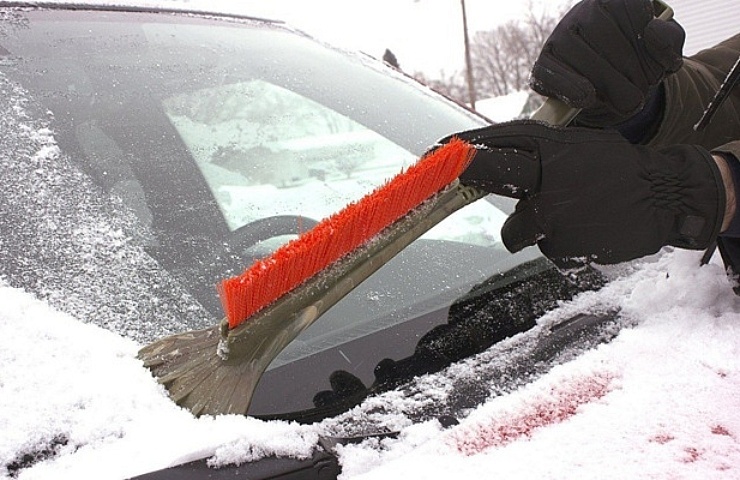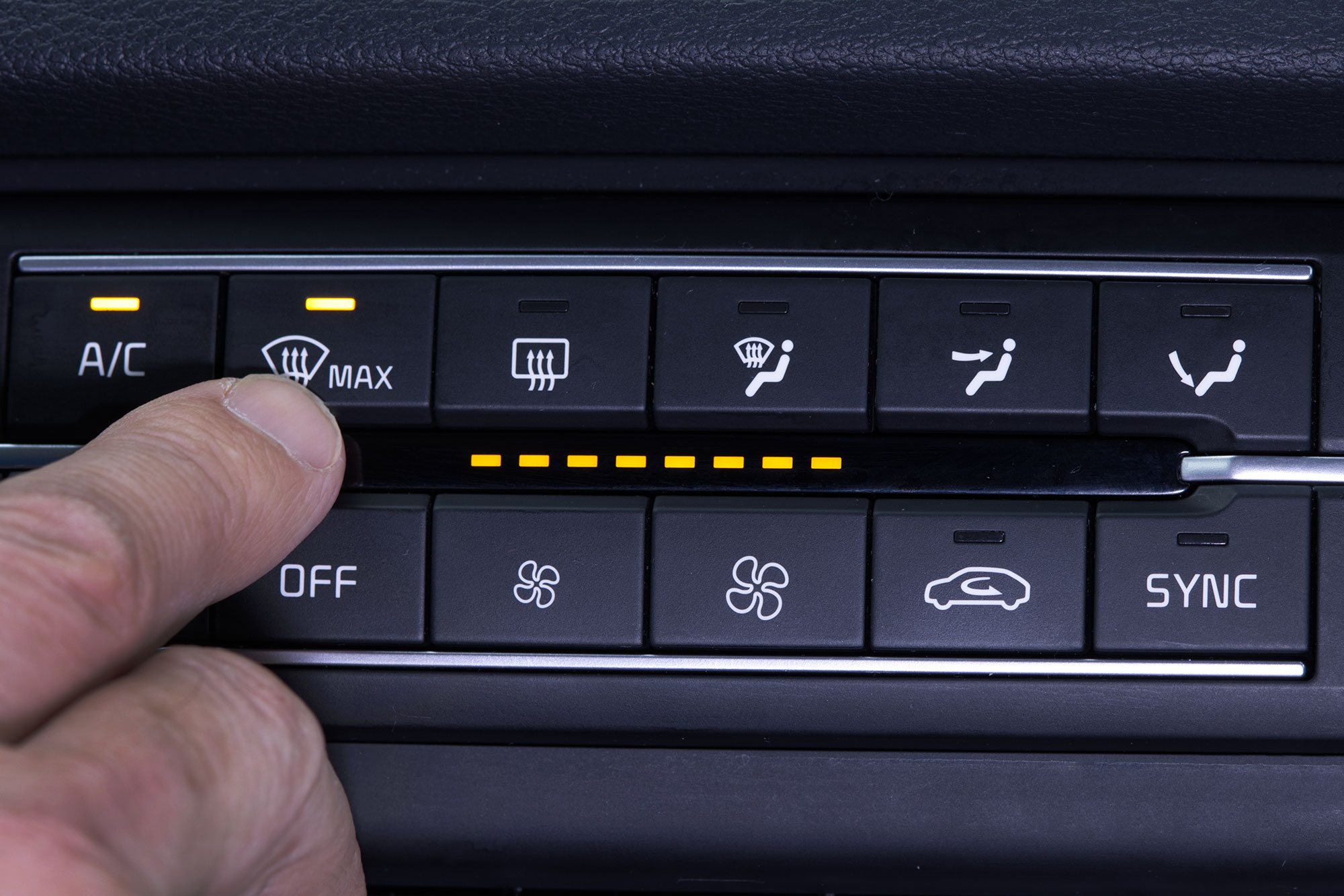Contents
Frost is a thin layer of ice that usually forms overnight. Moisture in the air collects on the glass as the air temperature drops. This moisture is more likely to form on angled glass, like windshields and some rear windows, rather than vertical glass, like passenger windows.
In warm weather, this is dew. But as the temperature drops below freezing, the water turns to ice. So in the morning, there is a thin layer of ice on the car’s glass that blocks your view.
Shop now for ice scrapers and snow brushesBefore Removing Frost
If a layer of snow accumulates overnight on top of the frost, brush that off first. The snow acts as insulation to keep the frost frozen. Removing the snow with a brush will also make it easier to reach the frost so you can remove it.
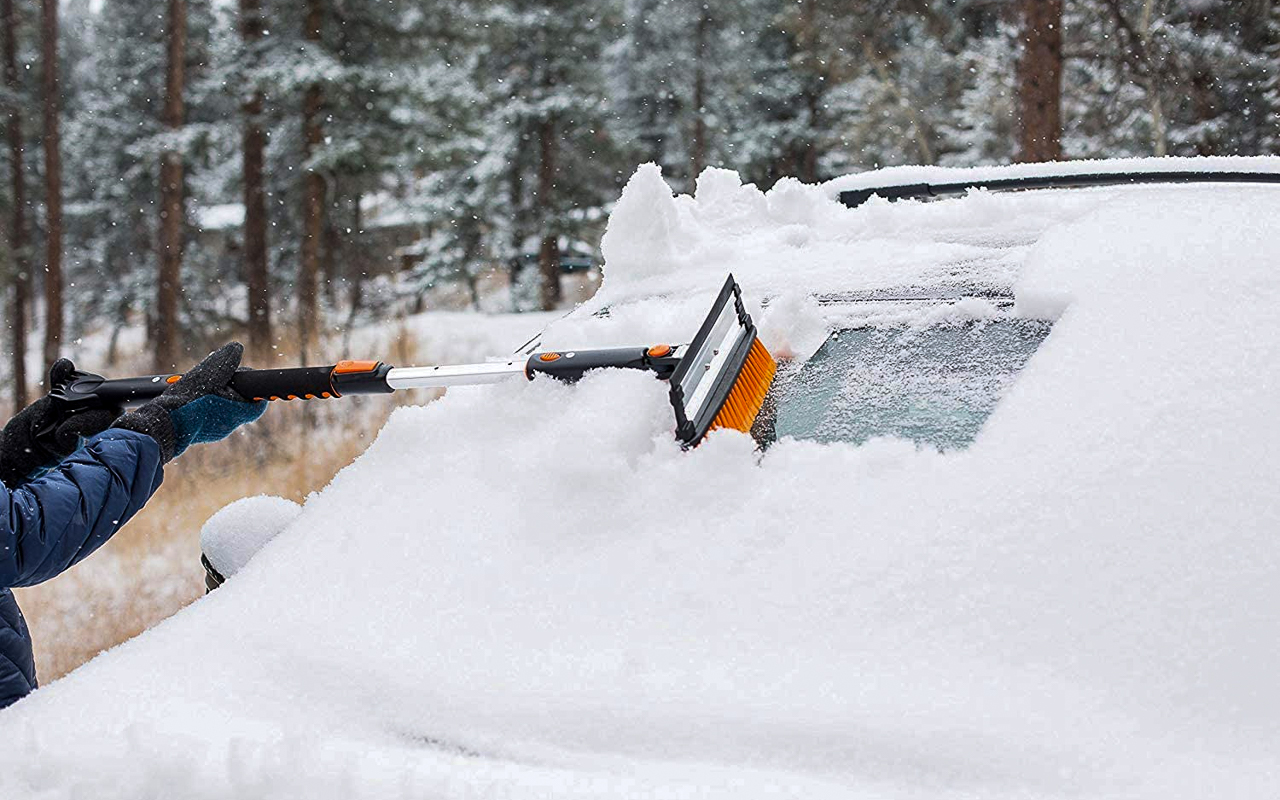
An extension pole snow brush scraper adds reach for larger vehicles like crossovers, SUVS, and trucks.
Some snow brushes have an ice scraper built into the handle, or you might have a stand-alone ice scraper. In either case, a scraper is a thin plastic blade that can remove ice in small sections.
A common problem with ice scrapers is that only narrow strips of frost are removed at a time, so the pace is tedious. Plus, you are outside in freezing weather while you’re scraping. Happily, there are easy alternatives for defrosting windows. Keep reading.
Easy Frost Removal
If you find a layer of frost on your car, here are five easy steps to quickly defrost the windows.
- Start your engine and turn your heater to its hottest setting.
- Set your heater to the defrost cycle. This is usually indicated by a symbol showing air blowing up from the dash to the windshield. For many makes, the control for the defroster is part of the heater dial or sliding lever.
- Set your fan to its highest setting.
- If your car has a defroster for the rear window, turn that on, too. Most rear window defrosters have a grid of wires embedded in the glass that heat the window when you turn it on.
- As the frost melts, clear the remnants away with your windshield wipers.
Within minutes, you should have a clear view through the glass and can safely start your journey.
Read: Before Winter Strikes, Make Sure Your Car Heater Is Working
Three More Ways to Remove Frost
Windshield Wiper Fluid Deicer
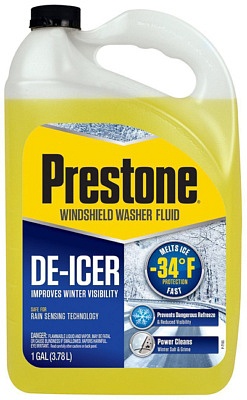
Ice melting windshield washer fluid
Many windshield wiper fluids come with deicer ingredients mixed into the cleaning solution. You can spray a little of the deicing fluid and activate the wipers. That fluid will quickly dissolve the ice—and clean the windshield too.
DIY Deicer
Another alternative for defrosting windows is to make your own mix of deicer. In a squeeze bottle, combine two parts rubbing alcohol (isopropyl alcohol) and one part water. You can drop in a few drops of liquid glass cleaner if you like. Gently dribble some of this mix down the frosty windshield. The frost will quickly disappear since the fluid has a lower freezing point than water. Don’t use this mixture around open flames, and keep it away from children and pets.
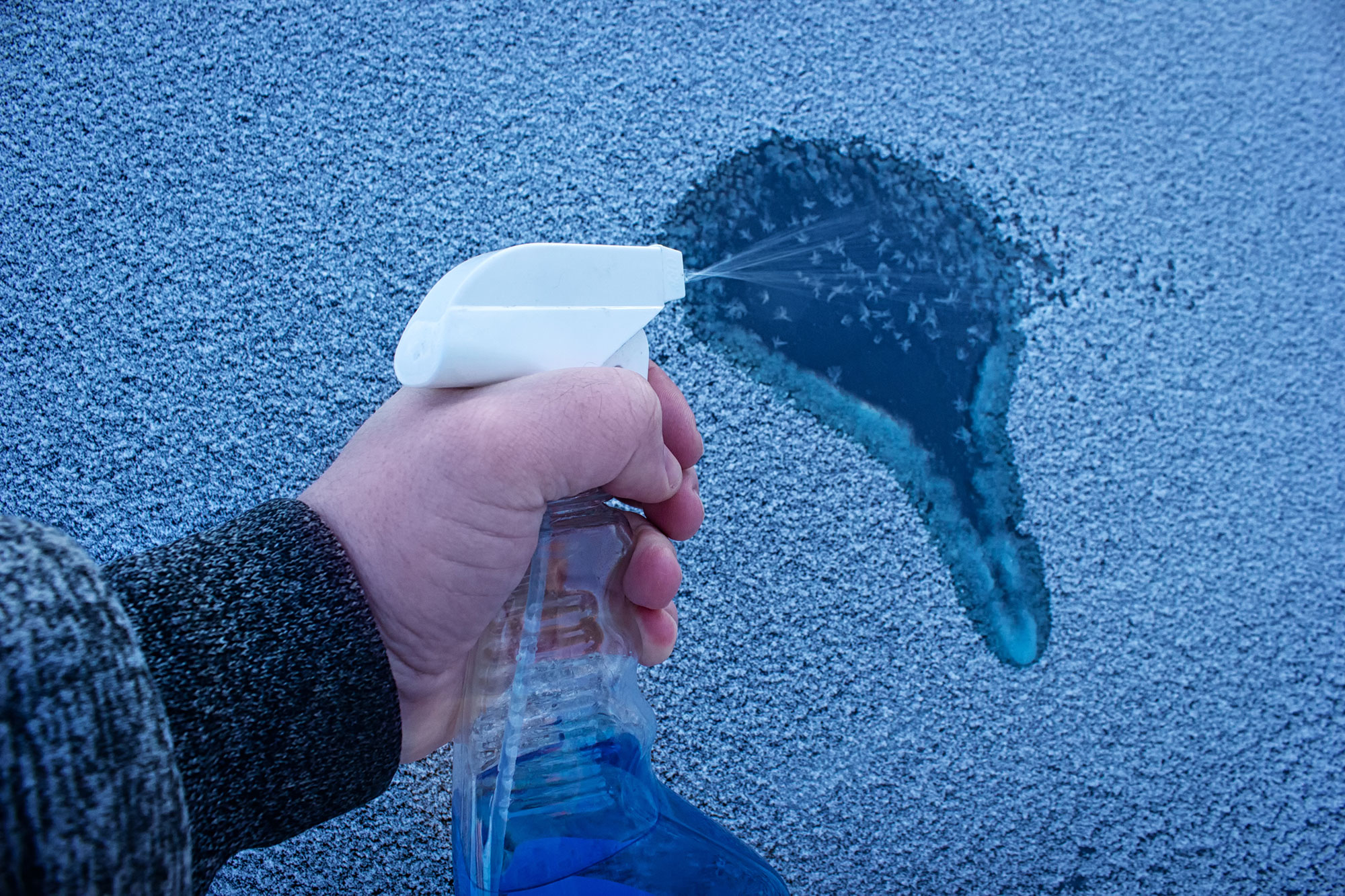
Deicer spray can help soften windshield frost and ice.
Frost Blanket
Finally, if you know the temperature will drop overnight, you can attach a cover (or frost blanket) over the windshield. Remove the covering when you are ready to drive, and you will have a clear view.
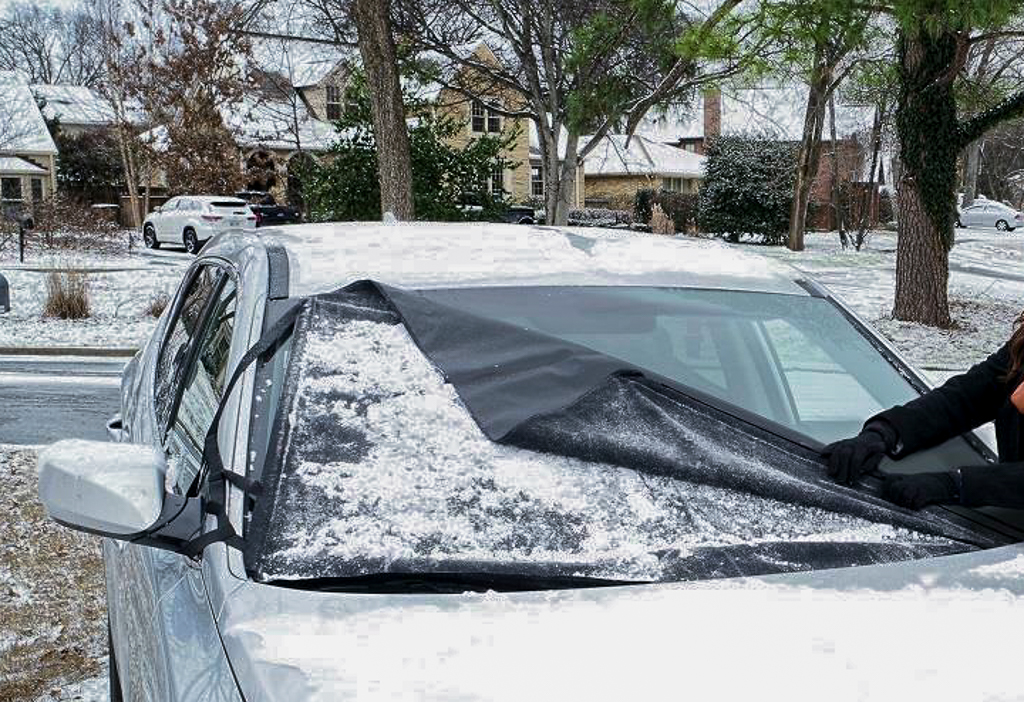
Windshield covers stop frost, snow and ice before it starts.
Here’s one thing you should never do when defrosting windows: throw boiling water on the glass. The sudden temperature change could cause your expensive glass windshield to crack or shatter. The four methods described above are the way to go.

